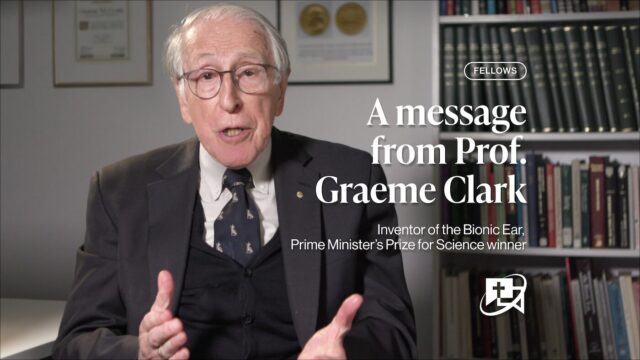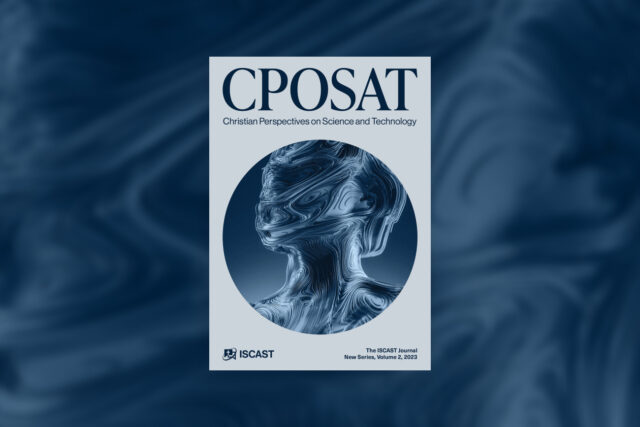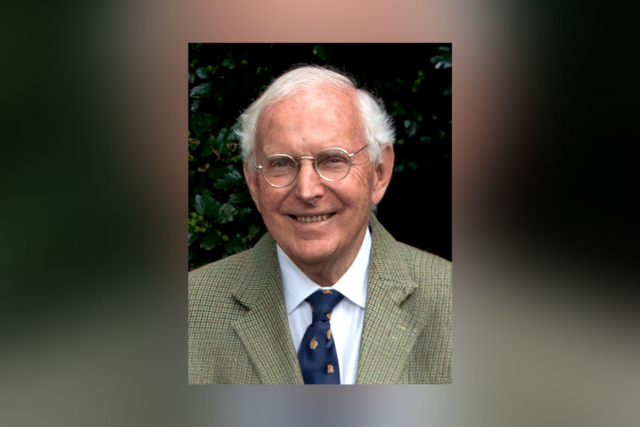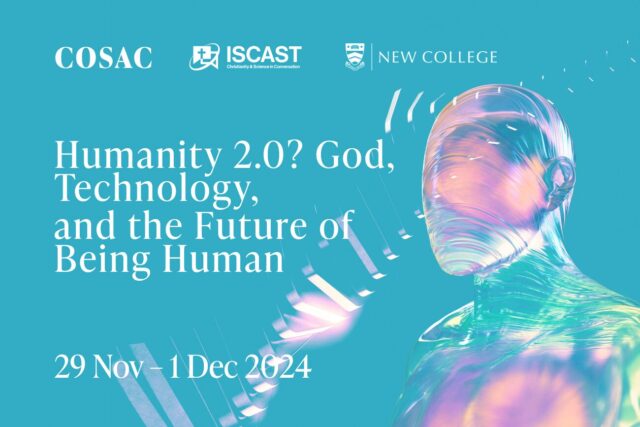
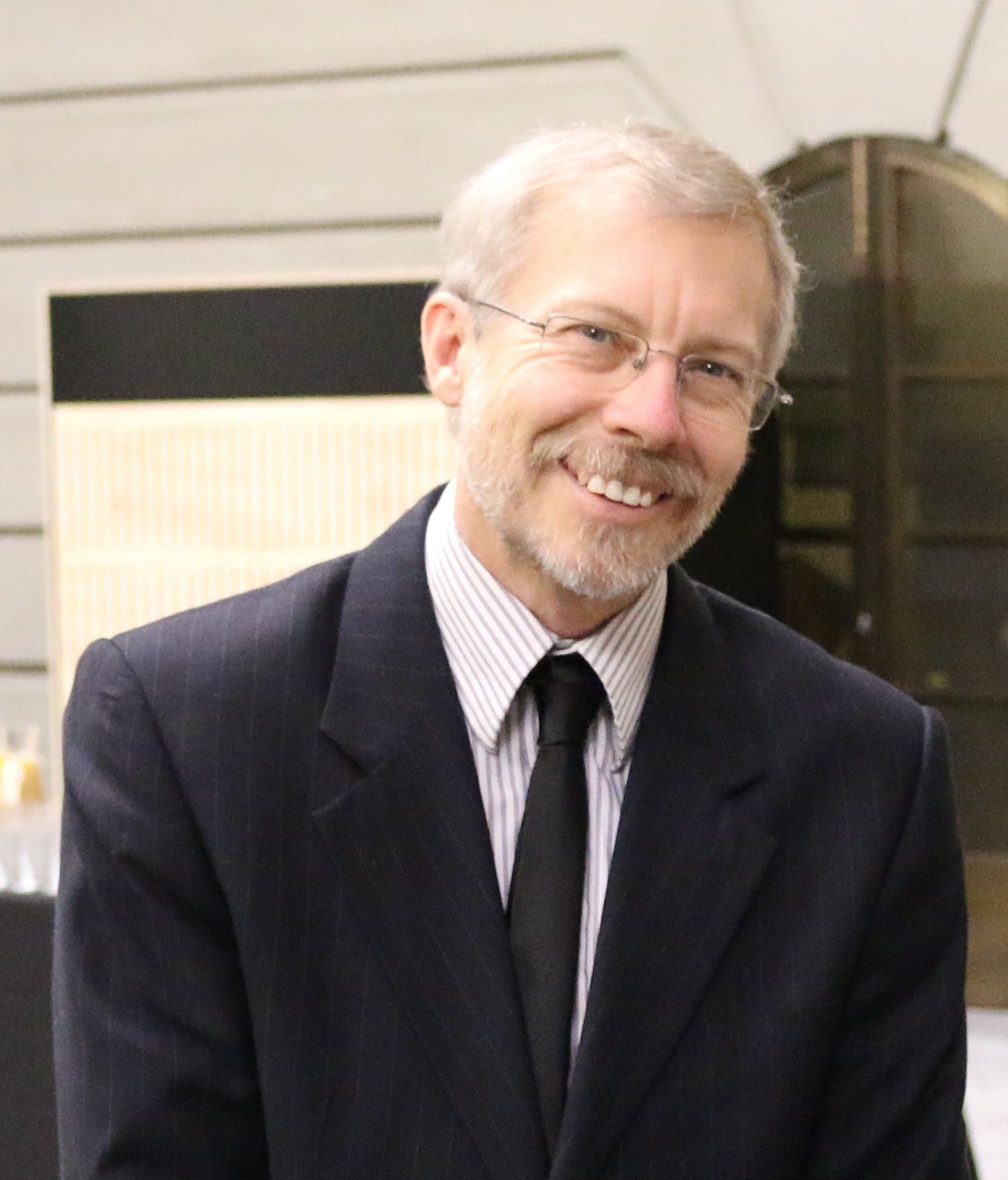

In this draft paper, ISCAST fellow, Rev. Dr Mark Worthing argues that while there are various views about what cultural and theological context was responsible for the rise of science it is monotheism more generally that is the key explanatory factor.
The article also comes with a Powerpoint presentation (in PDF form), which approximately follows the article but also has more specific comments in the last two slides directed at Christians in science and in academic research.
In December 2017 Mark Worthing presented this material at a University of Divinity research symposium.
Download paper (726KB)
Download slides (1.22MB)
Monotheism and the Origins of Natural Science
Mark Worthing, Dr.phil., Dr.theol.
Introduction
In the contemporary intellectual climate, it is often presumed that those with a belief in God must overcome this hindrance in order to work in the sciences, and must be especially careful not to let their presuppositions sway their research. Somehow the assumption is made that only those with a religious commitment bring any presuppositions with them to their research. And it is further assumed that science and research are the antithesis of faith and that religion, especially Christianity, has been a hindrance to the development of modern science that has had to be overcome. The reality is that none of these assumptions have themselves been able to be demonstrated by research in the history of science. If anything, quite the opposite. The biggest periods of growth in science have been associated with periods, regions and individuals with monotheistic faith commitments. Is this merely coincidental, or does the historical evidence suggest that monotheism somehow helped to give rise to modern science and the research culture associated with it? The historical aspects of this argument have been made in many places. What I believe merits further discussion are the philosophical aspects of the argument.
Part One: A brief taxonomy of theories concerning the link between monotheism and the rise of science
My early religious upbringing was as a conservative Protestant Christian. The natural sciences were generally viewed in a negative light as a threat to religious belief. Certainly I can recall none of my early religious teachers suggesting that Christianity or any other religious tradition may have played a significant role in the development of the natural sciences. In the context of my religious upbringing such an idea would have been absurd. My view of science and religion may have been dichotomised, but it was clear and easy to understand. As far as I was concerned this was the one point on which religious leaders and scientists agreed: Science and religion are natural adversaries. Like most young people from such a background my worldview concerning science and religion began to disintegrate at university. It seemed that perhaps science was not necessarily the enemy of faith; that a serious commitment to belief in God as creator implied a more than passing interest in the knowledge of the natural world;[1] and that the science and religion are enemies perspective that I had accepted as too obvious to question had its own dubious history. What follows is a brief survey of the various understandings of the relationship between religion, particularly the monotheistic traditions, and the rise of the natural sciences.
Science arises despite opposition from religion: The Draper-White Thesis
The appearance of Charles Darwin’s 1859 book, The Origin of Species, had a profound if not immediate impact on the relationship between Christian theology and the natural sciences. The whole debate over Darwin influenced such writers as John William Draper (History of the Conflict between Religion and Science, 1875) and Andrew Dickson White (A History of the Warfare of Science with Theology in Christendom, 1896) who portrayed the entire history of scientific development as a war against a bigoted and narrow-minded establishment Christianity that feared science and was being engulfed by its advance. Draper, warning of an intensified conflict between science and religion, concludes his book with the admonition that:
Faith must render an account of herself to Reason. Mysteries must give place to facts. Religion must relinquish that … domineering position which she has so long maintained against Science. … The ecclesiastic must learn to keep himself within the domain he has chosen, and cease to tyrannize over the [natural] philosopher, who, conscious of his own strength and the purity of his motives, will bear such interference no longer.[2]
Even White, whose views were somewhat more moderate than those of Draper, painted the various conflicts between theology and science, both real and imagined, as one-sided affairs in which an aggressive and overbearing ecclesiastical structure continually seeks to suppress a pure and truth-seeking science and its unassuming practitioners.[3]
The warfare model of Draper and White has had far-reaching consequences. Out of this model, for instance, arose the still popular view that Copernicus held back publication of his De Revolutionibus out of fear of persecution by the church. Yet Copernicus, himself a minor church official, had already outlined his views years before his death in the brief Commentariolus. The only pressure Copernicus appears to have received from church officials came from several members of the Lutheran University of Wittenberg (where Martin Luther was at the time teaching) and from Cardinal Schönberg in a letter to Copernicus dated November 1536. Both sources urged him to publish a full account of his theory so that it could be studied. In fact, Fred Hoyle, no friend himself of organised religion, conceded “the factors which deterred Copernicus [from publication] must either have been scientific or were personal to himself.”[4] Yet the image of a revolutionary astronomer fearful of the church’s reaction to his theory persists.
The Galileo affair, the actual details of which are embarrassing enough to the church, was reinterpreted. Ignored were the personal conflict between Galileo and his one-time supporter, Pope Urban VIII, Galileo’s pro-Spanish connections at a time when Spain was putting pressure on the papacy, and, perhaps most significant, the fact that Galileo was so frustrated by the Pope’s arguments against the Copernican theory, put to him in personal conversation, that he put them into the mouth of the fool Simplicius in his next book. But perhaps most intriguing of all was the success of the attempt to credit the church with the medieval superstition held in some quarters that the earth was flat. Indeed, even today many scientists and not a few theologians caution against a return to the days in when the church held to a flat earth. The only problem is that neither the church nor any of its teachers ever held to a flat earth. Medieval diagrams of the world portrayed it as a circle and philosophy and theology texts alike spoke of it as round or as being a sphere.
Yet despite the often poor documentation and obvious prejudice of the Draper-White thesis, as well as its eventual rejection by most respected historians of religion and science, it contained sufficient measure of truth to sustain its influence and colour, to this day, the views of many in both scientific and religious communities.
Science arose out of Puritan England
If the Draper-White thesis has little basis, then could it be that religion not only did not resist the rise of science but also played a positive role in this development? A shift – at the very least in the small intellectual and religious world I inhabited as a youth – was taking place. Many religious thinkers, and a number of scientists who were persons of faith, were challenging the idea that science was the enemy, even suggesting that it was a potential friend. As this view gained ground it seemed so too did attempts to take credit for the rise of science.
Between 1938 and 1975 at least three separate monographs appeared arguing that modern science owed its origins not just to religion, not just to monotheism, not just to Christianity, not just to Protestantism, not just to Reformed Protestantism, but specifically to English Protestant Puritanism.[5] And a fourth work, R. Hooykaas’ very influential work, Religion and the Rise of Modern Science, gave attention to the role of the English puritans, but argued that it was Calvinism more generally and the so-called Protestant work ethic to which modern science owed its inception.[6] While there were a number of leading contributions coming out of 17th century England, and while many of these individuals, not surprisingly, had a Puritan influence, as seen for instance in the strong Puritan representation and influence in the founding of the Royal Society of London in 1660, other Christians could be forgiven for thinking too much was claimed.
Science arose out of the Protestant Reformation
Others have argued more broadly that Protestantism in general laid the foundations for the rise of modern science. Clearly, Luther had some favourable views toward the natural sciences as independent disciplines already in the early 16th century and his colleagues at the University of Wittenberg included some of Copernicus’s earliest supporters.[7] Despite some rather embarrassing medieval beliefs about such things as the spontaneous generation of mice and dung beetles, and his view that birds survived the winter frozen in icy water, Luther was very clear that the study of nature had merit in its own right and was to be independent to the study of theology.[8]
The Australian professor of philosophy Peter Harrison, in his book The Bible, Protestantism and the Rise of Natural Science, argues that the particular Protestant emphasis on the study and exegesis of sacred texts laid down a methodology that led quite naturally to the scientific investigation of the natural world.[9] This theory, not surprisingly was more acceptable to most Protestants than the English-Puritan theory. It also meant that the historian of science should be looking not for what was unique to English Puritanism, but at what was unique to Protestantism. As a non-Reformed (Lutheran) Protestant this theory was imminently more appealing and satisfactory. It wasn’t long, however, before I discovered a problem with the Protestantism gave birth to science theory.
Science arose out of Medieval and Renaissance Catholicism
This view points to the impact of the monastery and cathedral schools, which taught medicine and natural philosophy as well as theology, and out of which the early European universities grew. It points to the role of Albertus Magnus and Thomas Aquinas in adaption Aristotelian philosophy to Christian thought. It points out that Copernicus and Galileo, among others, were part of the Roman church, and that the first scientific society in Europe was the Roman Catholic Linius society in Italy.
Science arose out of the Christian West, both Protestant and Catholic
It seemed that Roman Catholics had also played an early and key role in the development of modern science in Europe. Copernicus had been a minor cleric who died in good standing with the church, and Galileo, despite his disputes with the hierarchy of the church, never saw himself as anything but a Catholic Christian. The first known scientific society founded in Christian Europe, it turned out, was not the Royal Society of London in 1660, but the Italian Catholic Lincean Academy founded in 1603. And while 17th century Puritans were making some significant contributions to science, they were at least equalled by Jesuits during the same period. What emerges from all this is that, regardless of the various positive influences specific to Protestant and Catholic thinking in the 16th and 17th centuries, the scientific revolution in Europe and the subsequent development of modern science as we know it would have taken place in all likelihood with or without a Protestant Reformation or Catholic counter-reformation.[10] Now the challenge was to find something distinctive to Western Christendom, and share credit for the rise of science more broadly within the Christian tradition in general. Clearly, the Protestant work ethic and approach to biblical exegesis, however influential these may have been for some thinkers, were not capable of explaining the rise of science.
This account of the religious contribution to the origins of natural science, however, still falls very short. For one, it relies on defining science in such a way that we only seek to explain the kind of scientific approach and results typified by Western Europe in the 16th and 17th centuries. When we look more foundationally at what science is and the philosophical and methodological presuppositions which lay at its heart, the picture quickly becomes much more complex.
Science arose due to the influence of Judaism and Talmudic discourse
The oldest tradition within the Abrahamic monotheistic faiths has made the fewest claims of responsibility for the rise of science. Yet it has been noted that many of the features of Christian and Islamic thought that may have aided the rise of science originated in Judiasm. The influence of Jewish philosophers, physicians and scientists throughout medieval Christendom and early Islam is noted, as also the significant number of Jewish scientists. It has been suggested that the Talmudic method of argumentation and the interaction with other faiths through the centuries of diaspora contributed to an openness to critical thinking that played a key role in the rise of science.[11]
Science began its rise in Islamic thought
When the role of Greek philosophy, and especially of Aristotle, is taken into account, we quickly discover a world of scientific thinking and discovery centuries ahead of Christian Western Europe in the Islamic world. Muslim philosophers and scientists like Abū ‘Alī Ibn Sīnā (Avincena) (d. 1037) and Alī Ibn al-Haythan (‘Alhazen) (965-1039) were far more than simple forerunners of modern science in their methodologies and results. Centuries before science began to take hold in the Christian West remarkable advances had been made by Muslim scholars who were the beneficiaries not only of the work of the Greek philosophers, but were also in possession of the translated works of other cultures. In philosophy, in addition to Ibn Sīnā (who was also a noted physician), al-Kindī and al-Fārābī and Averroes stand out. The Persian Abu Bakr al Rāzī, famed for his knowledge of medicine, is remembered for his original contributions to the field and for his collation of Indian, Greek and Middle Eastern medical knowledge. Jābir Ibn Hayyān is remembered for what we would now call chemistry – though this science at the time often coexisted with alchemy. Al-Haythan, al-Khawārizmī, Thābit Ibn Qurrah, Omar Khayyam, and Banū Shākīr were expert mathematicians. In the field of astronomy and cosmology Abū Ma`shar al-Balkhī, Al-Battani, Ibn Yunis, and `Abd al-Rahmān al-Sūfī were all well-known. Centres of scientific learning existed in this period from Cordova in the West to Cairo in Egypt to Bagdad and Basra. The breadth and depth of scientific knowledge exhibited from the tenth to thirteenth centuries of the common era within the Muslim world was unparalleled up to that that time.[12]
Among these Ibn Al-Haythan, or `Alhazen, is an excellent example of the state of scientific inquiry in Islam at the beginning of the second millennium of the common era. `Alhazen was an accomplished mathematician, physicist and astronomer. He was also a pioneer in the field of optics, demonstrating that Euclid and Ptolemy were wrong about the eye sending out rays of light to view objects, but that it actually received rays of light from objects viewed. But it was not only his technical abilities that cause him to stand out. He relentlessly examined and questioned existing theories, rejecting those that did not match the physical data. He developed an articulated inductive method centuries before Bacon, and set out the steps for formulating and verifying hypotheses. The questions he asked about the natural world were intentional and systematic. He anticipated many achievements of Western science by at least six centuries not only in the area of technical knowledge, but also more critically in methodology. In looking at his achievements today two things stand out. Firstly, that he was not alone, but was surrounded by a number of contemporaries and near contemporaries who made remarkable strides in their fields of inquiry. And secondly, that he and his peers are all but unheard of by many Western scientists and historians of science. The golden era of Muslim philosophy and science is still being discovered by many in the West. There remains a challenge for Western scholars who may be too content with a tidy story of the rise of science in Western Europe to not only take into account the existence of these early Islamic achievements, but also to consider what role they played in the overall rise of modern science.[13]
Science began with the Nestorian physicians, philosophers and translators under the Abassids
The Nestorian Christian contribution to developments in medicine, science and philosophy in and around Baghdad from 786 to 1258 CE was significant. Le Coz has even suggested that they are largely to be credited with the rise of science during this period.[14] Although Le Coz would seem to overstate his case, to the detriment of the outstanding Muslim contributions of this period, figures such as Hunyan ibn Ishaq, Ishaq ibn Hunayn, Uhanna Ibn Sarabiyum, Jibrail ibn Bukhtishu and many others prominent Nestorian Christians certainly played a significant role.
Science began its rise with Greek philosophy and its turn toward monotheism
Going even further back we cannot ignore the fact that the very Greek philosophers who were so influential for the seminal forms of modern science made the strides they did at the very time they were moving intellectually away from the predominant polytheism of their culture and toward a philosophical monotheism. Clearly the writings of the Greeks, especially those of Aristotle, played a pivotal role in the golden era of Islamic philosophy and in the rise of universities in 13th century Europe and the subsequent progress toward the scientific revolutions of the 16th and 17th centuries. We tend to partition these achievements from later scientific advances, but they were in many ways the necessary preconditions for what followed. While Aristotle’s belief in a first cause, or prime mover, was not one of religious devotion, the intellectual movement toward belief in a single deity (though not necessarily creator of all things) certainly was more than an incidental component of his worldview. For those who support the view that monotheism did play a significant role in the rise of science, the movement toward philosophical monotheism among the Greek philosophers calls out for more attention.
Part Two: Objections to the Monotheism-Rise of Science theories
Objection 1: Competing theories cancel one another out
The fact that significant strides toward modern science were made in a variety of contexts associated with monotheistic worldviews has worked to counter overly confident claims that the rise of science is linked solely or largely with a single monotheistic tradition. At the same time, however, opponents of the view that there exists a link between monotheism and the rise of science have argued that the fact that these strides were made in a variety of monotheistic contexts, but not in all monotheistic contexts in all periods, suggests that the link is merely coincidental. The various theories of the rise of science and the link to monotheistic traditions, by virtue of the parochialism of many of these, work only to cancel one another out. The evidence is too strong to deny a link. But why, then, did strides toward modern science not occur in all monotheistic cultures? Why did little happen within Christianity until the 13th century, and then largely only in the West? Why did more development not continue to occur among some of the early Muslim societies that made such impressive early strides? Or why, in the long history of Judaism before the rise of Christian and Islamic monotheism did nothing like modern science begin to break through?[15] The most obvious answer to these questions is that the existence of a strong monotheistic worldview, while instrumental, is not alone sufficient to explain the rise of modern science in its various phases. Other factors most also be taken into account. Political stability, intellectual freedom, relative economic prosperity and a culture of learning, even the invention of the printing press, all appear to have been vital factors. The fact that the mere presence of monotheistic belief did not always lead toward further steps along the road to modern science, however, does not mean that a vital contribution was not made by this belief.
Objection 2: Scientific strides were also made in non-monotheistic cultures
It is well known to historians of ancient civilisations that we are continually upgrading our assessment of the technical achievements and abilities of ancient societies. The early Greeks, Persians, Babylonians, Indians and Chinese, to name just some of the more prominent, were capable of great feats of building and engineering which required advanced understanding of mathematics, geometry, metal working etc. Glass was formed, mirrors produced, electricity even appears to have been known. Remarkably accurate observations of the stars were made (often for purposes of astrology), and a knowledge of medicine and anatomy were available that were not equalled again for many centuries.
If all these things had been achieved in cultures that were not at the time monotheistic, then can we really argue that monotheism contributed anything essential to the rise of science? It is crucial for both the argument being made about monotheism and science, and for an understanding of the history of science, to make a distinction between science and technology. The two are closely connected. Advances in scientific understanding are generally followed by advances in technology. But the two are not the same. Impressive as advanced understandings of maths and geometry are, or the skills needed to predict an eclipse of the sun, or the basic knowledge of physics required for many ancient war machines – this knowledge and ability by itself does not qualify as science in the fullest sense. What seems to have been lacking in most of these societies is the quest for understanding about why things work the way they do and how the knowledge of these various workings are interconnected, as well as an articulated methodology for expanding our understanding of the natural world. To some extent these kinds of questions must have been present – but they do not appear to have been consistently pursued and integrated with an overall worldview. This seems to have only occurred in earnest among the various monotheistic contexts.
Objection 3: ‘The different forms of monotheism in Judaism, Christianity and Islam make it difficult to claim monotheism as a common factor
It has been argued that the differences in the forms of monotheism among Judaism, Christianity and Islam suggest there is not a common link in the influence they would have contributed toward the rise of science. It is well known that the three traditions have, sometimes even within themselves, very distinct ways of understanding the way God works in the world, from forms of atomism to the ideas of process theology in some expressions of Christian thought. Perhaps even more basically, Jewish and Muslim scholars have asked how monotheistic Christian belief actually is with its commitment to the doctrine of the Trinity. There is much work to be done in this area, but I think each of the monotheistic traditions needs to be open to respecting the commitment to the oneness and unity of God expressed in the others. Even if we find the form of this expression difficult to understand, the impact on our view of the world, with regard at least to the question at hand, appears to have been much the same.
Whether we believe God acts through natural causes only, in what some describe as a non-interventionist model, or we believe every single action and movement of every molecule is determined by God, the impact on our approach to the natural world has crucial similarities. The belief in a divine rationality that creates a comprehensible and rational world is present in all cases. So also is the quest for understanding of the physical processes of the world. Those who have been much more radically deterministic in their understanding, whether Muslim atomists or the Calvinist Puritans of England, do not appear to have held back from asking questions of nature on the basis that God determines each action and process. In every case the creation is seen as distinct from God, who it is assumed will act or create the world to behave in a regular and patterned manner, accessible to our understanding. As much as we might like to think that our own particular version of monotheism gives some unique advantage to the scientific endeavour, the truth appears to be that whatever it is about monotheism that may have played a critical role in the rise of science is common to the very basic conception of a single creator God and not dependent upon a particular expression of this belief.
Objection 4: Religion (including monotheism) actually opposed the advance of science
This objection has already been touched upon earlier in the paper, when we pointed out that many of the stories of opposition to science by religious leaders and institutions has been somewhat exaggerated. There remains, regrettably, a strong kernel of truth behind this objection. There were indeed incidences of opposition to the sciences and individual scientists. It is perhaps not surprising that religious leaders, as they saw the rising influence of science, sought at times either to stop or control science. These incidents, however, do not negate the role played by monotheistic belief in the rise of science, but represent much more a political reaction to a perceived and at times real loss of influence and power. However some religious official may have responded, the fact remains, as Harold Nebelsick put it, that “the main motivating force behind the pursuit of natural knowledge from the time of Babylon and Greece in the East to the time of the Renaissance in the West was theological rather than scientific.”[16]
Objection 5: Not all monotheistic cultures showed evidence of interest in scientific thought
If there was something particular about monotheistic religion and thought that provided a fertile ground for the rise of science, then why did so many monotheistic cultures show little or no trace of such tendencies? Medieval Christendom up to the 13th century, Islam societies outside of the Abassids and the later flourishing in Southern Spain, and most of the Eastern Orthodox areas of Eastern Europe showed little evidence of generating advances in scientific thinking, despite very firm commitments to monotheistic religion. This would seem to imply that the some other reason than monostheistic belief must be sought to explain what science did arise within those other monotheistic contexts.
Alternatively, it might well be argued that there were deficiencies of monotheistic understanding and practice in these areas that would explain the lack of progress in scientific thinking. For the most part the examples produced are indicative of very conservative regimes in which religious unity was enforced and academic freedom not encouraged. As well be seen in the following section, healthy and properly understood monotheism goes hand and hand with tolerance and intellectual freedom. Where these have been suppressed the positive aspects of monotheism that have encouraged scientific investigation of the physical world have not been able to flourish and no contributions to the rise of science were made.
Part Three: The case for monotheism as an essential contributing factor in the rise of science in its various stages
Perhaps the strongest argument for the case for the role of monotheism in the rise of science is explanatory. Scientific method itself places much weight on explanation. The more data a theory explains, the more weight that theory is given. If the monotheism-science theory is correct, then more is needed than a series of intriguing historical connections, which may after all be only coincidental. The critical question is: What specific advantage or advantages did monotheism provide for the rise of science, and to what extent do these advantages help to explain the rise of science in its various forms and phases from the time of the ancients Greeks, through the golden era of Muslim philosophy, to the explosion of scientific advances arising out of 16th and 17th century Christian Europe?
Monotheism created a context in which questions could be asked of the natural world
Monotheism by its very nature encouraged the asking of questions about the functions of the natural world. In the polytheistic worldviews that dominated much of the ancient world there was little concept of secularity. Everything had its god or spirit, and every event could be explained through the actions of the various deities. Whether famine, flood or volcanic eruption, the key to understanding what had occurred – and if negative to prevent its recurrence – was to understand the workings of the various deities. Max Weber points out that this desacralisation of the world laid the groundwork for a scientific approach to the world. But why would this be the case? One might think that monotheism, especially those forms with strong affirmations of God’s sovereignty, would have been little different to polytheism in the tendency to attribute all causes directly to the actions of a single deity, eliminating the need to ask questions about natural causes. If a flood or drought came, then why was God angry and what must we do to appease him? Didn’t monotheism simply roll up the functions of the various competing deities into one package? But this is not what happened. While there are of course exceptions, in most cases belief in one God – especially an all-powerful, all-knowing sovereign God, led people to look increasingly to natural causes. An all-powerful, sovereign God, while certainly capable of intervention – indeed of miracle – would create and govern the world in such a way as to ordinarily follow regular and therefore comprehensible patterns. If nature is not itself divine, but the creation of the divine One, then we can ask questions of nature – even conduct experiments on it.
Monotheism and the unity of knowledge
The second major contribution of monotheistic thought was its emphasis on the unity of knowledge. The Muslim doctrine of Tawhid is well-known. The unity of God had implications for the unity of what God creates and for the unicity of knowledge of the created world. It was commitment to the doctrine of tawhid that motivated many of the early Muslim philosophers. Christian thinkers likewise saw the correlation between the oneness of God (albeit understood in Trinitarian form) and the unity of knowledge about the world created by God.
If a single divine being was responsible for the whole of the created, natural order, then all knowledge about the natural world must be fundamentally interconnected. Monotheistic thinkers not only tended to ask after natural causes and explanations (without rejecting God as the ultimate cause of all things), but also to view these causes as fundamentally linked – having a common ground in the one creator God.
Monotheism appears not only to have set people free to ask the questions of nature necessary for the emergence of science, but it also by its very nature suggests a unitary view of the world and the knowledge of the world that has proved vital for the rise of science – from the Greek philosophers, to the golden era of Muslim philosophy and science, to the revolutions in scientific thinking in Western Europe.
The mind of God and the natural order
A core assumption of monotheism is that a logical mind will produce a logical world. If the mind of God is coherent and comprehensible, then the world which God creates must also be so and can be approached and investigated with the expectation that it can be understood. This tendency to ask questions of the natural world was not only a result of the freedom monotheism tended to provide to ask such questions, but also rose from the belief in divine intelligence. If God is rational, then there should be an inherent intelligibility in the universe. As John Hedley Brooke has pointed out, the 17th century quest after the laws of nature can also be seen as a quest to uncover the divine legislation that lies behind nature’s regularities.[17]
Monotheism and intellectual freedom
Though examples of the suppression of intellectual freedom among the monotheistic traditions are numerous, it can be argued that the source documents of Abrahamic monotheism, as well as the fundamental assumptions of philosophical monotheism, lead in another direction. A God whose existence and power does not depend upon our devotion and who does not require our defense is a God who can be questioned (cf. Job) and who can respond to doubt with evidence rather than threat (cf. the story of Thomas). Healthy monotheism produces sufficient confidence in its adherents to be able to live with religious and intellectual diversity. Regrettably, human nature has often suppressed this tendency of monotheism, but when it has been rightly grasped (e.g., in the Golden Age of Islam under the Abassids) the impact on the advance in scientific thinking has been profound.
Monotheism, peoples of the book, and literacy
Numerous studies have been done on the impact of the reliance of Jews, Christians and Muslims upon their sacred texts. The role that these ‘books’ have played in the classic monotheistic religions have also served as a great impetus for literacy. The existence of scribes and literate audiences to read the books they copied out, meant that other ideas could also be more readily written down and exchanged between cultures and passed down through the generations.
Summary of argument
In summary, modern science and the research culture associated with it, arose, in large part, due to:
(1) the freedom provided by monotheistic worldviews to ask questions about the ‘hows’ and ‘whys’ of the natural world (as these were no longer assumed to be controlled by various local dieities);
(2) the assumption that a logical mind would create a physical world that was also logically comprehensible; and
(3) the assumption that a single creator God implies that all knowledge of the physical world must be interconnected.
These factors explain why all of the greatest strides in modern science, from Plato and Aristotle, to Early Christian and Jewish thinkers, to the Golden era of Islam, to the explosion in scientific discovery among European Catholics and Protestants from the sixteenth to the eighteenth centuries, occurred when monotheistic thought was strongest and most dominant in the intellectual thinking of the day. Without these key contributions of monotheistic belief, it is unlikely that modern science and the research culture associated with it would have arisen.
[1] Wolfhart Pannenberg, for instance, argued that; “If the God of the Bible is creator of the universe, then it is not possible to understand fully or even appropriately the processes of nature without reference to that God. If on the contrary nature can be appropriately understood without reference to the God of the Bible then that God cannot be creator of the universe.” Pannenberg, “Theological Questions to Scientists” in The Sciences and Theology in the Twentieth Century, ed. A Peacocke. (Notre Dame, IN: University of Notre Dame Press 1981), 4.
[2] John William Draper, History of the Conflict between Religion and Science (London: Henry S. King, 1875), 367.
[3] Cf. Andrew Dickson White, A History of the Warfare of Science with Theology in Christendom, 2 vols. (New York: D. Appleton and Company, 1896).
[4] Fred Hoyle, Nicolas Copernicus: An Essay on His Life and Work (London: Heinemann, 1973), 32f
[5] Cf. Robert K. Merton, Science, Technology, and Society in 17th Century England (1938); Christopher Hill, The Intellectual Origins of the English Revolution (Oxford: Clarendon Press, 1965): and Charles Webster, The Great Instauration: Science, Medicine and Reform 1626-1660 (London: Duckworth, 1975).
[6] R. Hooykaas. Religion and the Rise of Modern Science. Edinburgh: Scottish Academic Press, 1972.
[7] Cf. David Knight, Copernicus. London: Franklin Watts, 1965, pp. 192f.
[8] See the chapter ‘Luther on the Border of Superstition and Science,’ in M. Worthing, Martin Luther. A Wild Boar in the Lord’s Vineyard. Morning Star Press, 2017, pp. 141ff.
[9] Cf. Peter Harrison, in his book The Bible, Protestantism and the Rise of Natural Science (Cambridge University Press, 1998).
[10] Cf. Gary Deason, “Reformation Theology and the Mechanistic Conception of Nature,” in God and Nature, 172.
[11] There is an interesting analogous discussion of the impact of Talmudic discussion on the Jewish mind in explaining the great success in chess at the highest levels of so many Jewish players. See for instance, David Spanier, Total Chess, 1984.
[12] Cf. Stephen Mason, A History of the Sciences (New York: Macmillan, 1962), 95ff. and S. Nomanul Haq, “Moments in the Islamic Recasting of the Greek Legacy: Exploring the Question of Science and Theism,” in T. Peters, M. Iqbal and S. Haq, eds., God, Life, and the Cosmos: Christian and Islamic Perspectives. Ashgate 2002.
[13] Cf. Muhammad Saud, The Scientific Method of Ibn Al-Hyatham. Islamic Research Institute, Islamabad, 1990 and S. Nomanul Haq, “Moments in the Islamic Recasting of the Greek Legacy: Exploring the Question of Science and Theism,” in T. Peters, M. Iqbal and S. Haq, eds., God, Life, and the Cosmos: Christian and Islamic Perspectives. Ashgate 2002.
[14] Cf. Le Coz, R. Les médecins nestoriens au Moyen Âge: Les maîtres des Arabes. L’Harmattan, 2004.
[15] It should be noted, however, that Jewish thinkers did play key roles in the key periods of the development of modern science. At the height of the golden era of Muslim science Maimonides was a famed philosopher and medical expert who went from Muslim Spain to serve as personal physician to Saladin. Jewish philosophers and scientists also played a role in the explosion of scientific thinking that began to occur in Europe from the 17th century. Judaism, even in diaspora, played its role in the rise of science.
[16] Harold Nebelsick. Circles of God: Theology and Science from the Greeks to Copernicus. (Edinburgh: Scottish Academic Press, 1985), xiii.
[17] John Hedley Brooke, Science and Religion: Some Historical Perspectives.



